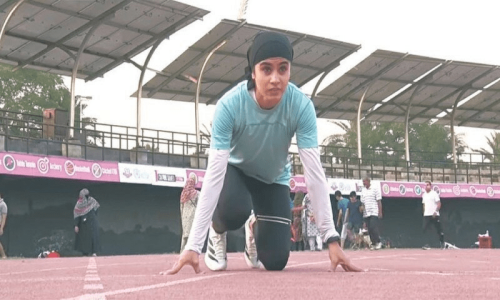LONDON: British legislation banning forced marriage came into effect on Monday, with those found guilty of the largely hidden practice facing up to seven years in prison.
The law applies not only within Britain but also makes it a criminal offence to force a British national into a marriage abroad, as many youngsters are flown out to weddings in their ancestral homelands, particularly in Pakistan, India and Bangladesh.
Nearly two-thirds of the cases dealt with by the government's Forced Marriage Unit (FMU) relate to Britain's South Asian communities.
Campaigners welcomed the new laws as a “huge step forward”, while the government hopes they will protect potential victims.
A practice wrecking the lives of unknown thousands of British-born youths, forced marriage has been increasingly exposed in the last decade.
“Forced marriage is a tragedy for each and every victim, and its very nature means that many cases go unreported,” said Home Secretary Theresa May.
“I am proud to say that the UK is already a world leader in the fight to stamp out this harmful practice with the government's FMU working hard to tackle this terrible practice in the UK and overseas.
“Today's criminalisation is a further move by this government to ensure victims are protected by the law and that they have the confidence, safety and the freedom to choose. “Last year, the FMU dealt with some 1,300 cases, 18 per cent of them men.
Forty per cent of victims were aged 17 or under; three quarters were aged under 22.
Officials fear the number of victims coming forward is just the tip of the iceberg.
Meanwhile charities say few leaders with influence in their communities are prepared to take a stand, for fear of losing their support base.
The cases related to 74 different countries, although 43 per cent were linked to Pakistan, 11 per cent to India and 10 per cent to Bangladesh.
Other countries with multiple cases included Afghanistan, Somalia, Iraq, Nigeria, Saudi Arabia, Yemen, Iran and Tunisia.
The National Society for the Prevention of Cruelty to Children said children as young as 12 had contacted them about forced marriage, with the numbers calling up two-thirds in the last year.
The charity's Ash Chand called the new law “a huge step forward which we hope will deter those plotting against their own children.
“Many young people who call our ChildLine service about this issue are frightened, concerned and feel control of their lives is being wrenched from them. “













































